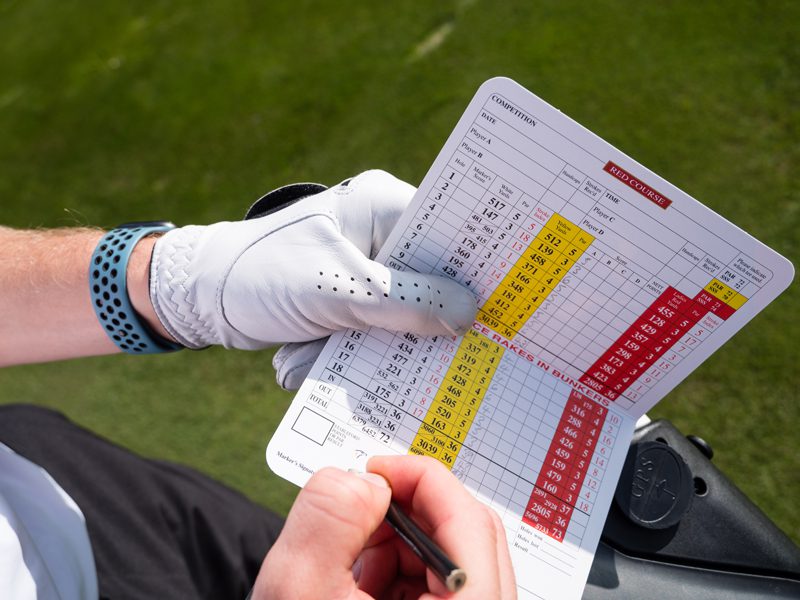Golf is a game of skill, precision, and technique. For the beginner golfer, getting started can be daunting – from choosing the right golf clubs to understanding the rules of play. But with practice and experience, anyone can become a top-notch player in no time at all.
The first step on your journey to lower handicaps is picking the right golf clubs. Most golfers will start with a set of clubs that includes a mix of woods, irons, and wedges. There are also specialty clubs such as hybrids, putters, and drivers. It can be used to tailor a set to your particular playing style.
Once you have your equipment in order, the next step is learning how to use it. You can improve your swing technique with practice from a qualified golf coach. This, plus understanding the rules of play. It will help you become more knowledgeable about the game. It enables you to better track your progress over time.
Tracking your progress is important to becoming a great golfer. Handicaps measure how one’s performance compares to others. A lower score indicates that the player is more advanced. By tracking your progress, you can determine how much you have improved over time. You can also identify areas where you need to work harder.
The Novice Golfer’s Handicap Journey
- Choose the right golf clubs.
- Understand the rules of play.
- Improve swing technique with practice and instruction from a qualified coach/instructor.
- Track progress with a handicap system to measure your performance against others.
- Identify areas for improvement to lower your score and achieve a higher level of mastery.
- Train and practice consistently to stay sharp and hone your skills.
- Take part in tournaments to test your skills against experienced players.
- Celebrate successes along the way and enjoy the game!
Progressing Through Handicap Levels
Beginner
A score of 22 and above is considered a beginner.
Intermediate
Scores between 11 and 21 state an intermediate-level player.
Advanced
Players with handicaps ranging from 4 to 10 are generally considered advanced.
Professional or Scratch Level
A score below 4 indicates a professional or scratch golfer.
Elite Level
Players with a handicap of 0 or less are considered top-notch players.
Dedicated Practice and Training
Practice your swing and technique frequently. Seek out feedback from a qualified instructor or coach to help hone your skills. Incorporate drills into practice routines to target areas that need improvement. Join group clinics or workshops for extra tips and advice. Track progress with handicap tracking systems. It will determine areas of success and areas for improvement.
Take part in tournaments to test your abilities against experienced players. Stay motivated and positive – practice can be difficult, but it will pay off in the end!
Overcoming Plateaus
- Analyze your practice routine and identify areas that need further improvement.
- Work on weak spots consistently to develop better technique and skills.
- Seek out feedback from a qualified instructor or coach. They are for outside perspectives and advice.
- Incorporate drills in practice routines to help build strength and accuracy.
- Track progress with handicap tracking systems. It will determine areas of success and areas for improvement.
- Take part in tournaments or competitions to challenge yourself against more experienced players.
- Stay positive and motivated. Plateaus can be difficult, but with dedication and focus you will progress!
- Celebrate successes along the way. Progress isn’t always linear, so it’s important to appreciate successes and milestones.
- Keep track of progress in a journal or blog to stay motivated and inspired.
- Take breaks from practice if needed. Sometimes it can be beneficial to step back for a little while before jumping into drills again.
- Incorporate physical fitness activities. Such as running, cycling, or yoga into your routine to help build strength and endurance
The Pro Golfer’s Handicap Journey
what is a good golf handicap? Maintain and improve swing technique and accuracy with practice and instruction. Continue to track progress through a handicap system. Take part in tournaments and other competitions. It helps you to test your skills against experienced players. Stay motivated, positive, and focused on the journey. It will need dedication, discipline, and hard work! Track mental health and take regular breaks to reduce stress levels.
Take part in physical activities. Such as running, cycling, yoga, or weightlifting to build strength and endurance. Incorporate drills into practice routines to target areas that need improvement. Use modern technology. Such as online resources, apps, and websites to track progress and stay informed. Celebrate small successes along the way. It’s important to feel good about accomplishments no matter how small. Reach out to fellow golfers for support and inspiration on the journey.
Conclusion
Golf is a complex game that requires skill, practice, and dedication. Whether you’re just starting or an experienced pro. There are always opportunities to improve your handicap. Use the right clubs. Understand the rules of play and track progress with a system. Such as a handicap can help you become an even better player over time.

